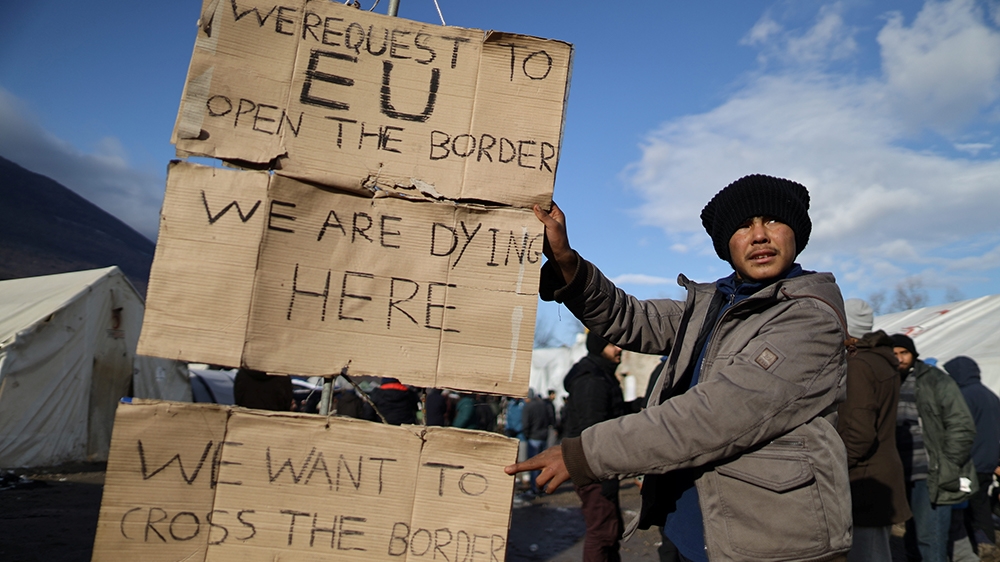Bosnia shuts down controversial camp, transfers migrants
Migrants at Vucjak camp moved to reception centre near Sarajevo after observer warned of imminent deaths.

Bosnian officials have begun closing a makeshift tent camp in the country’s northwest, moving hundreds of migrants who were stranded in snow and freezing weather to a new reception centre under construction in a former military barracks near Sarajevo.
International aid organisations repeatedly warned that the ramshackle Vucjak camp, close to Bosnia’s border with Croatia, is unfit for people to live in because it is located on a former landfill and close to a minefield from the 1992-95 war.
Keep reading
list of 3 itemsWho should be tackling Bosnia’s migrant crisis?
Bosnians deported from Croatia for ‘refusing to spy on Muslims’
Around 600 people were living there without running water or proper heating.
The closure comes after a European Council of Rights official visited Vucjak and warned that deaths would be imminent if the camp was not shuttered immediately.
“If we don’t close the camp today, tomorrow people will start dying here,” Council of Europe Commissioner for Human Rights Dunja Mijatovic told reporters while visiting the camp blanketed in snow.
At a press conference in Sarajevo on Friday, she stressed the “shameful” and “inhumane” conditions.
Muhamed Tarik, an Afghan who lives at Vucjak, told Al Jazeera: “I will go to Sarajevo. The weather is not good now, and there are a lot of problems. The ground is wet, tents are full of water, the food is not good.
“The camps in Sarajevo are better. I will try to cross the border when the weather gets better. I want to go to France.”

Despite reports that some refused to be moved on, Nermina Cemalovic, health minister for the Unsko-Sanski canton, told Al Jazeera that all migrants and refugees willingly accepted to be relocated to the Usivak camp near Sarajevo.
“The relocation is under way without serious issues,” she said. “Our plan is to relocate around 350 migrants in seven buses … and the most important thing is that they accepted to go there.”
Local police said more migrants will be relocated tomorrow.
Al Jazeera’s Branislav Zekic, reporting from the Usivak camp, said workers were preparing the site for the incoming migrants.
The centre opened last August with capacity for 400 people, but has since been extended and can now accommodate 750, according to the International Organization for Migration (IOM).
Preference for border camps
Previous attempts to move migrants back towards the capital have been hampered by the fact that many eventually return to Bihac to be close to the border.
Bosnia’s northwest Bihac region, which also hosts several thousand people in IOM-camps, has become a key base for migrants from the Middle East and Asia who cross the Balkans to reach Western Europe.
The route through mountainous Bosnia emerged after the northern Balkan path towards Hungary was largely stamped out in 2016.
Poor and hobbled by a complex and divided government, Bosnia has struggled to accommodate the influx despite financial aid from the European Union.
Many do manage to make it into Western Europe, while around 8,000 are currently in Bosnia, most in the Bihac area hoping to get into the EU.
But pushbacks by Croatian police are common, leaving some marooned in the Bihac region for long periods.